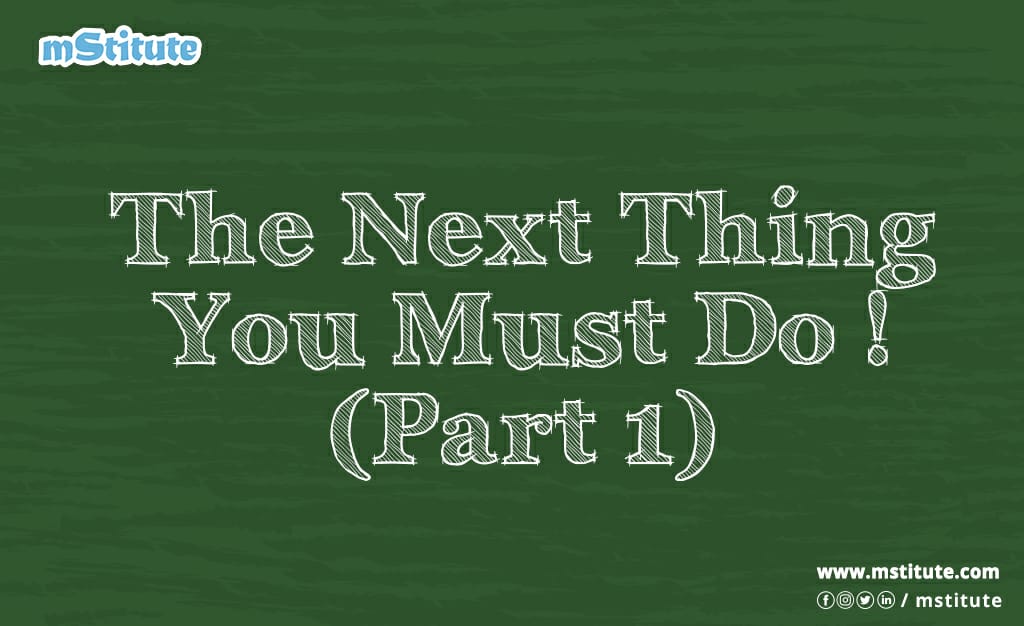Learning to learn (part 1): The next thing you must do!

Most authors and trainers preach that the academic or professional transformation is like a ‘Magical Wand’ and their one article or book or a session will show you the result. But let me tell you this before you drift away from this article as per the practice of new-age data consumption –
“There is no single moment of the transformation. It’s a journey which takes you to the destination and only possible vehicle is your self-awareness.”
If you are still reading, this is the right time to tell you what this blog-series is about. This blog is about ‘Meta-Cognition and Motivation’. It is relevant for every learner and teacher. In short, for every human being. Because whatever profession you are in, you never stop learning if you want to keep growing. So, I am here to help. Not to walk you through your journey but to make you capable of designing and walking the path. Rest is your grit and determination.
My Experience!
As a teacher, I have enjoyed the love, affection and trust of my students. The lack of any formal training in the art and craft of teaching never shadowed our relation. I used my experience as a student to design my instructional strategies in teaching, and the results are beautiful. Not only it helped me in multidimensional growth of a student by challenging her/him systematically to creative thinking, strategizing and problem solving but also helped me find a special place in their hearts.
Overjoyed, I used to dream of radical improvement in students and their learning strategies. But the transformation was limited. Why? This question and answer to it will guide us in our journey. But a short answer to this is, “I used these strategies while learning and teaching various subjects, but failed to apply the strategies when it came to studying those very strategies.”
I am now convinced that if I don’t document these strategies which I picked up or learned over a long period unintentionally and coincidentally, I will be depriving the learning community of clues to building some of the best practices in the domain. So least I can do is to write my experiences and draw some learning out of it, which will help my readers and students.
In this series I will be talking about me and my experiences on numerous occasions. Not a welcome habit in the world of intellectuals. But you will have to bear with it as I can not effectively share what I learned from my experiences without sharing the experiences.
What could I do during my junior/senior college years?
- In college, I could relate things in syllabus to real life examples even as students. I remember how I explained that the concept of curl of a vector field could be applied to rotation of a leaf floating in flow of water to one of the teachers and he would get amazed.
- Also, I could ask myself logical and challenging questions which would help me understand things better. Sometimes I would ask that question in class and could answer it myself after some time . Some of my teachers suspected that I was doing it deliberately with some mischief and used to tell me to get out of the class.
- Even, I could find missing links in concepts. For example, while learning about conditions for consistency of three equations in three variables, I could think of visualization of three planes to reproduce the results on my own.
- I could attempt a completely unknown problem by devising new strategies and take it to its logical conclusion. My teachers would point out that he hasn’t seen such a method in any books available to him. Sometimes, he would suggest, I have taken unnecessarily longer root to arrive at the answer.
- And, I could create pictorial summaries of some chapters where one page of summary would help me reconstruct every detail and concept in that chapter.
I can learn very effectively from multiple sources. But it took me quite a long time to understand that what I could do was quite rare among my peers. I used to think, what I was doing was a common practice of teachers and students. But now I know, it is not. Rarely do the teachers and students know that there are better strategies for learning.
We must find answers to three important questions…
- What was the exact nature/format of strategy?
- How I might have acquired it?
- Can we devise a method with which these strategies can be taught and learned?
I will answer all the three questions, but not necessarily in that order and not in one go. Because, I should also use the strategies while writing this blog series too.Right? 🙂
So have patience. If you feel that I am going slower and extra-detailed, understand. I must.
(Part 1 – to be continued….)
Kindly, subscribe now to get notified when “Learning to Learn : Part 2” is live.


Yogesh
March 11, 2020Really, curious to know about learning of learning!